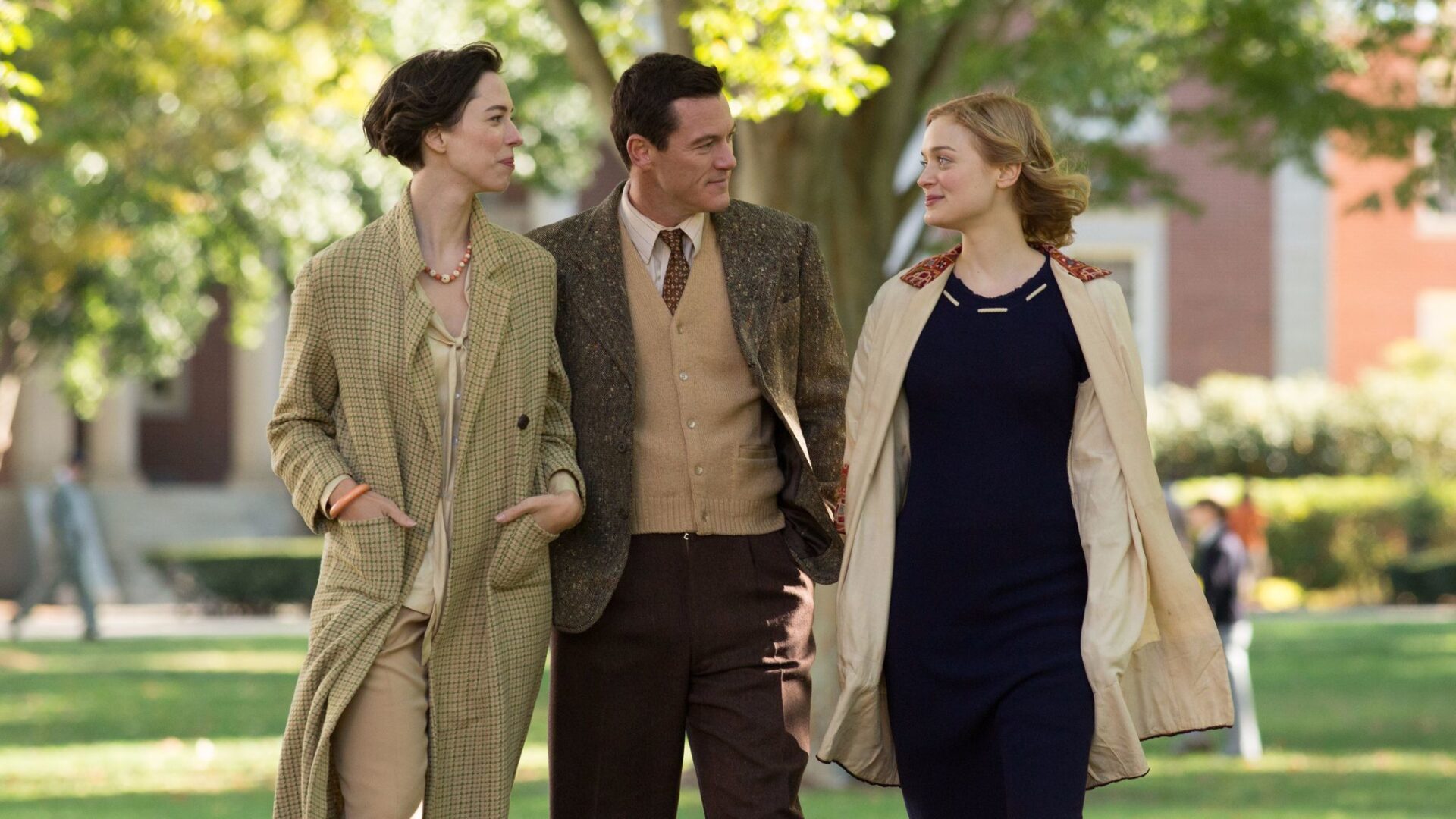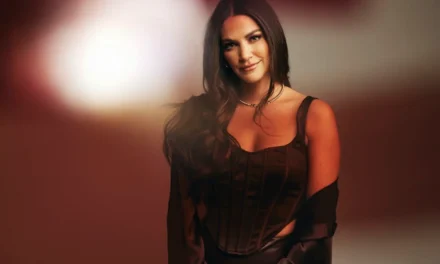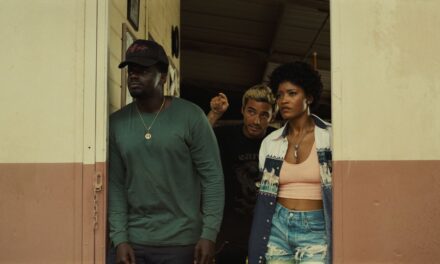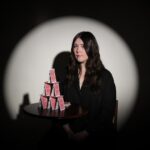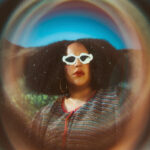In terms of relationships that have conventionally been considered acceptable to portray on screen, bisexuality, kink, and polyamory—the practice of being consensually romantically involved with more than one partner—have never been given their due in film. Sexuality is so often expressed in binary terms, BDSM is portrayed in questionably consensual ways that undermines the reality of those relationships, and polyamory is virtually nonexistent. As someone who has familiarity with each of these identities, it is disheartening to see my perception and approach to relationships unrepresented and misrepresented in popular media. This is what makes Professor Marston and the Wonder Women such a modern marvel; it is not only a positive and affirming representation of a relationship model that is not discussed in popular discourse, but it does so in a manner that reveals the roots of one of popular culture’s most prominent figures: Wonder Woman.
Professor William Moulton Marston (Luke Evans) was psychological researcher who specialized in the study of dominance, submission, and the interactions between men and women, along with his similarly credentialed wife Elizabeth Marston (Rebecca Hall). When the pair of them take on a research assistant, Olive Byrne (Bella Heathcote), the three begin to discover non-exclusive romantic feelings for one another, at first struggling against the notion of a non-binary, non-heteronormative relationship before coming to realize that their affections for one another are no less real than they are socially condemned. The film follows the next two decades of their lives as they hide their relationship from the world even as they find a way to make a family and raise their children.
What stands out about writer-director Angela Robinson‘s portrayal of the relationship is that it always feels genuine, surely impacted by the social pressures of the setting and time but never questioned as anything but legitimate except by characters with obvious and extreme prejudice. There are scenes lovingly staged to demonstrate the consensual and compassionate interplay of control and subservience that informed the triad’s feelings for one another, with Marston acting as a mediating influence between Elizabeth’s sarcastic cynicism and Olive’s hopeful determination that enables all three of them to be their best and most complete selves. The three are never treated by the camera as oddities to be mocked or sexual curiosities to provoke titillation; rather, every scene treats their relationship as an event worth celebrating, even as the world around them forces their festivities into the shadows.
What propels Professor Marston into greatness, though, is the subtle indication that Wonder Woman, a character Marston created in the 1940s to contribute to his family’s financial stability and push a feminist agenda on the world, is full of coded references to the lives of himself and his partners. The early years of the Wonder Woman comics were stuffed full of Marston’s theories on dominance, submission, and the empathetic superiority of the female gender, but it quickly becomes clear that Wonder Woman is an amalgam of the heroic aspects he sees in both Elizabeth and Olive, morphing the character from a bit of propagandic children’s escapism into a coded biography of their lives, imbuing her adventures with highly personal ethos. It recontextualizes the world’s most popular woman superhero into an emblem for an oppressed groups’ struggle to get by in a world that decries their existence, and it couldn’t have come at a better time.
Professor Marston and the Wonder Women spoke to this writer on a very personal level. It is a love story that is so humanistically and empathetically portrayed that it provokes tears from someone who has faced similar difficulties, and it bridges a gap between the oddity of unconventionality and the mythos of generations in a manner that will cause more vanilla, monogamous, and straight people to consider the ways in which a particular subset of our society is suppressed and demonized for the simple sin of wishing to love in their own way. This film is a thing of beauty that surely deserves every eye that falls upon it.

